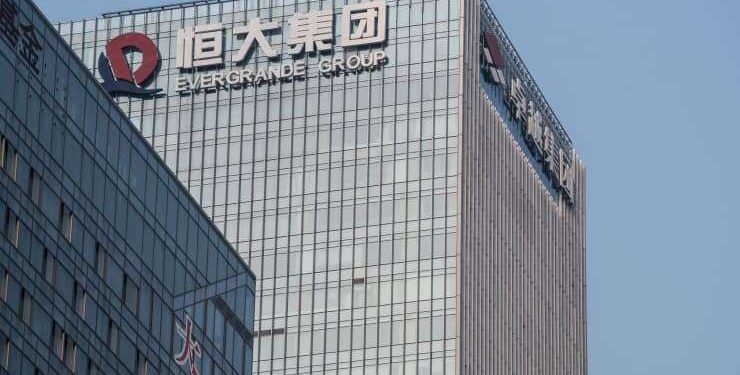China Evergrande shares plunge 12.5%, after $2.6 billion asset sale falls through
China Evergrande shares dropped 12.5% on Thursday, after a deal to sell some of its assets to Hopson Development Holdings fell through.
Hopson shares closed nearly 7.6% higher, while Evergrande Property Services shares fell 8%.
Heavily indebted Evergrande was in talks earlier this month to sell part of its services unit to Hopson, its smaller rival. However, Hopson announced late Wednesday that talks fell through to purchase a 50.1% stake in Evergrande Property Services. Evergrande confirmed the termination of the deal in a separate filing.
The deal would have been worth 20.04 billion Hong Kong dollars ($2.58 billion), according to filings.
Evergrande is China’s second-largest developer by sales and the industry’s largest issuer of offshore bonds, with a total of about $300 billion in liabilities. Worries about the company’s ability to repay its debt have raised concerns of spillover into China’s real estate market, which — along with related industries —accounts for about a quarter of national GDP.
Trading in the three stocks resumed Thursday, more than two weeks after the companies had halted trading ahead of a “major transaction.”
No progress on asset sales
The collapse of the Hopson deal comes as Evergrande nears the end of a 30-day grace period for a closely watched $83 million interest payment to investors in an offshore U.S. dollar-denominated bond. If the developer fails to pay by Saturday, it will technically default.
Evergrande said late Wednesday that since selling its $1.5 billion stake in Shengjing Bank in late September, “there has been no material progress on sale of assets of the Group.”
Last week, Reuters reported, citing sources, that Chinese state-owned Yuexiu Property has dropped a $1.7 billion deal to buy Evergrande’s Hong Kong headquarters building.
Both companies did not immediately respond to a CNBC request for comment.
Evergrande’s high reliance on debt to expand rapidly came under greater government scrutiny last year, with the rollout of “three red lines” policy for real estate companies to reduce the ratio of their debt to their assets.
China Evergrande had violated all three red lines as of the first half of this year, while Hopson and Yuexiu hadn’t crossed any of those lines, according to Natixis.








